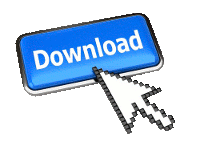Keith Norris (Admin)
| | Posted on Wednesday, May 07, 2003 - 09:16 pm: | |
What�s New in v4.20 of the Now SMS/MMS Gateway?
The primary new features of v4.20 of the Now SMS/MMS Gateway include:
- Enhanced WAP push support: A new multimedia WAP push function makes it easy to push multimedia objects to mobile phones via WAP � a useful alternative to MMS in environments where external MMSCs are blocked by the mobile operators. Additionally, we�ve added support for other push options from the web menu interface, giving more control over WAP push requests.
- Absolute credit balances can now be applied to SMS user accounts, as is support for IP address restrictions which can restrict user accounts from submitting messages from a limited range of IP addresses.
- There are also fixes for a memory leak that could occur if a script configured for an HTTP �2-way� receive message command returned an error response, and a fix for an error message when receiving an MMS message on a Panasonic GD87.
- CIMD2 support has been added for connections to Nokia SMSCs, and there have been some minor compatibility fixes for both SMPP and UCP/EMI SMSC connections, primarily related to character set handling.
- The GSM modem interface has also been greatly improved to fix problems where some modems could not be successfully initialized by the gateway unless a modem driver was installed for the modem, and to improve performance when receiving messages over a GSM modem connection.
- The MMSC now has support for automatically parsing MSISDN information (when available) from Nokia and Ericsson WAP gateways. The MMSC also includes a configuration option that allows MMS Notification messages to be routed through an external WAP Push Proxy Gateway instead of being routed directly over SMS.
The complete list of v4.20 release notes is found below:
- SMSGWS: Remove HTTP redirect response from "Send MMS Message" function. This was causing authorization header problems for some developers who were issuing this request outside of a browser context.
- MMSC: Change response to m-notifyresp-ind message to stop Panasonic GD87 from reporting "Receive Failed" after downloading an MMS message (even though the message was always downloaded completely).
- SMPP: Support for receiving messages when the message payload interface is used.
- MMSC: Add support for parsing the MSISDN header from an Ericsson WAP gateway. When using the MSISDNHeader setting in the MMSC.INI file, add MSISDNHeaderEricssonFormat=Yes to read the MSISDN from an Ericsson WAP gateway. When this setting is specified, the gateway expects to find an MSISDN header that starts with an IP address, followed by the actual MSISDN in hexadecimal format (e.g., MSISDN: 10.5.148.5 3430373233313830353332, which this setting will cause the MMSC to parse as 40723180532).
- MMSC: Add support for parsing the MSISDN header from a Nokia WAP gateway. When using the MSISDNHeader setting in the MMSC.INI file (normally set to X-Network-Info for a Nokia WAP gateway), add MSISDNHeaderNokiaFormat=Yes to read the MSISDN from a Nokia WAP Gateway. When this setting is specified, the gateway expects to find an an MSISDN header that starts with some text, followed by a comma, followed by the MSISDN and optionally additional data after another comma (e.g., X-Network-Info: CSD, 5439459559,unsecured will parse as 5439459559).
- MMSC: In the MMS to e-mail interface, return an error if the SMTP relay server reports an error accepting a message.
- SMSGWS: Fix for "Send MMS Message" function not working properly if user connects to http://localhost to send the message.
- SMSGWS: Add statistic tracking of the number of messages sent out each defined SMSC connection.
- Improved compatibility with Windows Terminal Server. Previously the configuration program could not correctly detect if a service was active when running under a Terminal Server session.
- Add setting for default value for "Data Coding Scheme" (DCS) when sending binary messages. Default is F5 (hex). Can be set in SMSGW.INI as BinaryDCS=xx, where xx is a hexadecimal value. A particular US service would not route binary messages unless DCS was set to 2 or 4.
- UCP/EMI: Extended characters were not always encoded properly in outbound text messages, resulting in "Syntax Error" responses from the SMSC.
- E-Mail to SMS: Expand the character sets supported by this interface.
- E-Mail to SMS: Fix problem with messages being copied to extra recipients when an SMTP server sends multiple messages over a single SMTP connection.
- 2-way SMS: When receiving messages, if the SMS message text includes carriage return or line feed characters, we need to remember to escape them for transmission to an HTTP command.
- SMSGW: Fix for some character encoding problems when submitting MMS messages via the web menu interface.
- SMSGW: Add support for absolute credit balances on "SMS User" accounts, instead of just monthly and daily limits.
- SMSGW: Add login restriction by IP address for "SMS User" accounts.
- Add support for multimedia WAP push. New form added for submitting content. Also, via the e-mail interface, a multimedia WAP push can be sent similar to how an MMS is sent by appending ".wappush" to the user portion of the recipient e-mail address. (Example: 447778001210.wappush@mms.gateway.domain)
- SMPP Server: Remove support for SMPP server (when SMPP clients connect to NowSMS as the SMPP server) initiating "enquire link" requests to connected clients. Some primitive SMPP clients like the Nokia WAP Push Proxy Gateway can initiate "enquire link" but cannot respond to it.
- MMSC: Add support for generating WAP push and MMS notifications requests via a WAP Push Proxy Gateway using PAP (Push Access Protocol). Documentation for configuring this interface available at http://www.nowsms.com/tb/tb-nowsms-007.htm.
- SMSGW: Fix for memory leak that would occur when connecting to a "2-way" HTTP command to receive inbound messages, and the command returned an HTTP error or an HTTP redirect response.
- SMSGW: Add additional options for WAP Push via the menu interface. Add support for "Service Load" from the web menu interface in addition to existing "Service Indication" support. Add support for setting the "si-id" for a "Service Indication" push, settable via the HTTP variable WAPSIID. Add support for setting the signal action for "Service Indication" push, settable via the HTTP variable WAPSIACTION, with possible values of "signal-none", "signal-low", "signal-medium", "signal-high", and "delete". Add support for execute action for "Service Load" push, settable via the HTTP variable WAPSLACTION, with possible values of "execute-high", "execute-low" and "cache". Add support for "si-expires" and "created" attributes for "Service Indication" push, settable via the HTTP variables WAPSIEXPIRES and WAPSICREATED, both of which accept a date/time in the format: YYYY-MM-DDThh:mm:ssZ (where "T" and "Z" are literal characters).
- SMSGWS: More character set handling issues. 10 Greek characters are part of the GSM 7-bit character set. If any of these characters were present in an outbound SMS message, the gateway would use less efficient Unicode encoding for the message, even though it was not required. Also, if any of these 10 characters were in a 7-bit SMS message received by the gateway, they would not be received correctly. This has been fixed.
- SMSGWS: Fix for a 250 character (125 byte) limit on UDH size.
- MMSC: Fix for an exception error that could occur under heavy load when multiple messages were being received simultaneously. This error would cause the gateway service to restart.
- MMSC: Add support for wildcard MIME type entries in UAProf parsing for content conversion (e.g., video/*).
- SMSGWS: Add support for received SMS messages to be routed to an e-mail address. Configure a receive command in the "2-way" dialog, with the "Command to Execute" set to "mailto:user@domain", and received messages that match the defined prefix will be sent via e-mail to "user@domain". (Note: This feature sends outbound e-mail via the MMSC, so the MMSC must be active to support this feature.)
- SMSGWS: Add support for CIMD2 protocol for connecting to SMSCs.
- MMSC: Delivery receipt formatted updated to support standard delivery receipt format according to the MMS specification.
- MMSC: Add configuration file option to set a limit on the size of MMS messages submitted through the MM1 interface. In MMSC.INI, under the [MMSC] section header, parameter MMSMessageSizeLimit=### is supported, where ### is the maximum size MMS message (in KB) that will be accepted by the system.
- SMSGWS & MMSC: Add support for LogDirectory=d:\path setting in both SMSGW.INI and MMSC.INI (under [SMSGW] and [MMSC] section headers). This setting specifies the directory into which log files should be written. (Note: This does not apply to the debug logs, only the standard log files.)
- SMSGWS: Receive MMS flag is ignored by the gateway. If "Receive SMS" is enabled, the gateway would automatically parse inbound MMS messages even if "Receive MMS" was not enabled.
- SMSGWS: Add support for ReplyRequested=Yes parameter when submitting an SMS message to the NowSMS gateway. This sets the "reply path" parameter when the messages is submitted to the SMSC. Note that while this parameter does cause the phone to treat the message as one that requests a reply, it also has the effect of telling the recipient device to reply through your SMSC. Therefore your SMSC may either ignore this setting, or it may reject messages with this setting.
- SMSGWS: Improved handling of simultaneous send/receive on GSM modem connections. Previously if the gateway was busy sending out messages, it would significantly delay the processing of received messages.
|

